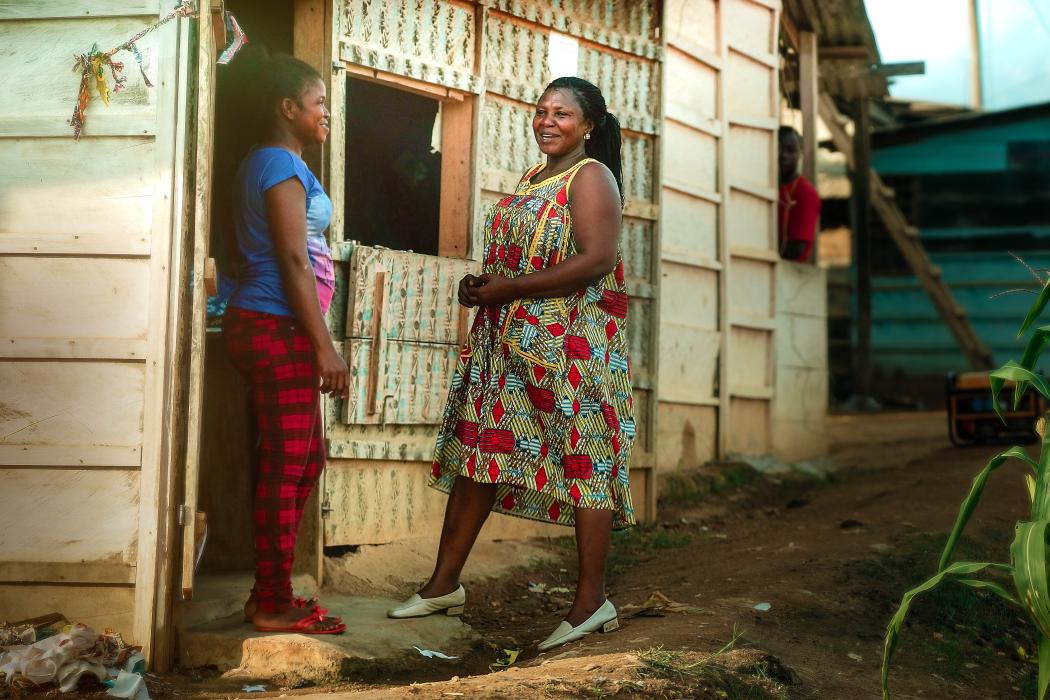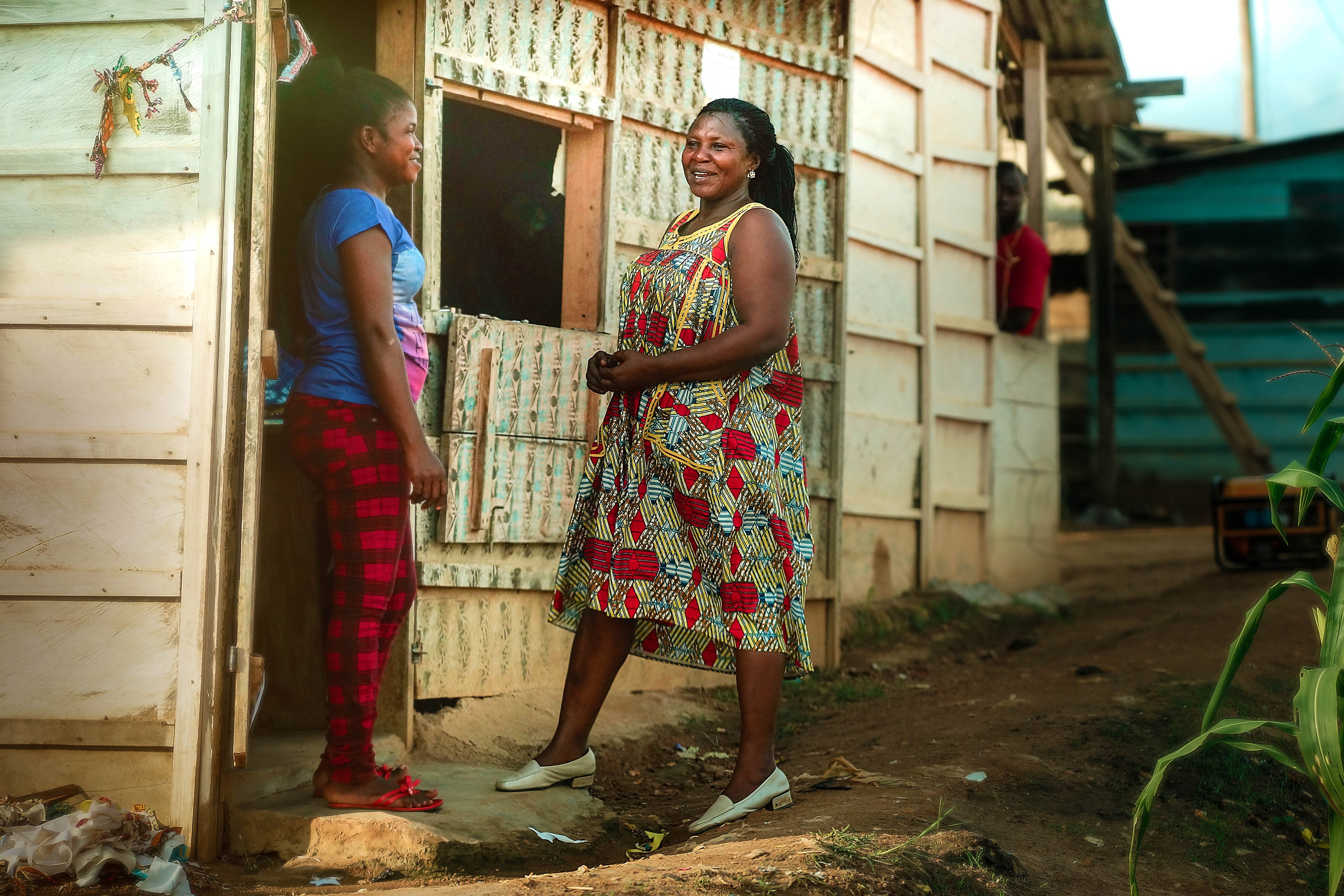Untapping the Potential of a ‘New’ Human Resource for Health: The Local Community Leader

By Dr. Mariam Reda, HRH2030/Chemonics
“There is a family of six children who were facing financial difficulties. I approached the husband and talked to him about family planning. He was hesitant at first, but now the wife is on Sayana Press. They recently stopped by my house to thank me for explaining to them the dangers of further pregnancies on the wife’s health/life.” ‒ recounts Paul Boyolo, a local leader at Bokito clinic in Bafia District of Cameroon.
This was just one of the activities Paul set out to accomplish as part of his community family planning (FP) agenda to remove the barriers that impede women, men, girls, and boys from making informed and voluntary decisions about FP and their reproductive health (RH).
Since October 2017, USAID’s HRH2030 (Human Resources for Health in 2030) has been implementing the Local Leadership and Management approach which focuses on strengthening the capacity of local community leaders in Bafia District of Cameroon to bridge the gaps between FP providers and the community, and to encourage the development of local solutions to FP challenges. HRH2030 worked with national and regional health representatives to identify the three most critical consequences stemming from a lack of knowledge about FP and limited access to high quality FP services, including lack of birth spacing, unplanned pregnancies, and sexual precociousness.
These are common issues across the nation. In Cameroon, despite the Ministry of Public Health’s efforts to increase FP service delivery points throughout the country, the use of FP services remains low. The 2011 Demographic and Health Survey documents a contraceptive prevalence rate of 23.4% among married women currently using any method of contraception. The rate among married women using a modern method was only 14.4% as of that date while the global rate was around 67% in 2012. In the district of Bafia, some challenges to FP services include: 1) husbands/partners who are the primary decision-makers for women’s RH; 2) reluctance in seeking FP services because of rumors or misinformation about contraceptive methods (for instance, that they may cause infertility, cancer, or undesirable weight gain); and 3) structural constraints on health workers to educate potential beneficiaries about FP methods due to understaffing and high workload.
Local leaders can provide a way to connect community members with the FP information they are lacking. Local leaders are regular people from the community — carpenters, hairdressers, shop owners, religious figures, school teachers, wives, husbands, fathers, daughters — but because they are engrained into the cultural, social, economic, and religious weave of a community, their involvement or capacity building on health issues can have considerable impact on the wellbeing of their neighbors. The positive power of their influence is shining through in matters related to FP in Bafia District, and the leaders themselves appreciate this new form of empowerment:
“[We are on] a new mission … to sensitize women and couples on the benefits of family planning.” exclaims Mireille, a community leader at Bokito clinic in Bafia District, Cameroon

Elisabeth, a local leader from the district of Bafia in Cameroon, visits a woman from the community to increase her awareness of family planning methods and discuss family planning options. Photo credit: Alain Ngann, 2018
In the past nine months, the far-reaching impacts of local leaders have already started to make a difference in everyday practices and long-term life decisions of families. Like Paul, local community leaders are engaging with their neighbors in new ways to spread the word on FP. Boyomo Michel from Bokito highlighted that “We are health volunteers … we are not asking people to abandon tradition, but to couple tradition and modernity to encourage the population to accept these new methods of contraception which help the population. It is also important to elevate women by letting them know the importance of having children at the right time and when you have enough means.”
One community member in Bafia notes: “The sensitizations are very good because before women didn’t have the courage to ask for services. But then they heard about those services and they go to the clinics, they are treated well, and they have the courage to continue going.”
A local clinic’s health management team shared: “[We] have a huge number [who] now show up at the clinics to talk about family planning. People are now very aware of family planning, and this continues to increase.”
FP has a direct effect on every family member’s possibility to become educated and productive, to prosper economically, and to remain healthy. In Bafia, thanks to the engagement of the local leaders, prospects are looking brighter.
As we work to improve the awareness of contraception and to enable individuals to make informed choices about their reproductive health, let us consider how we might create systems to properly and sustainably engage local leaders to serve as strong bridges between health providers, clients, and the local community. Local leaders are untapped human resources for health that are readily available across the world! How can we empower or engage them in health matters to positively influence and inform their community members? The Local leadership and management approach is a promising one. Where can we take it next?
*Check out the wonderful visual story of Elisabeth as she recounts her journey as a local leader in Bafia District.
